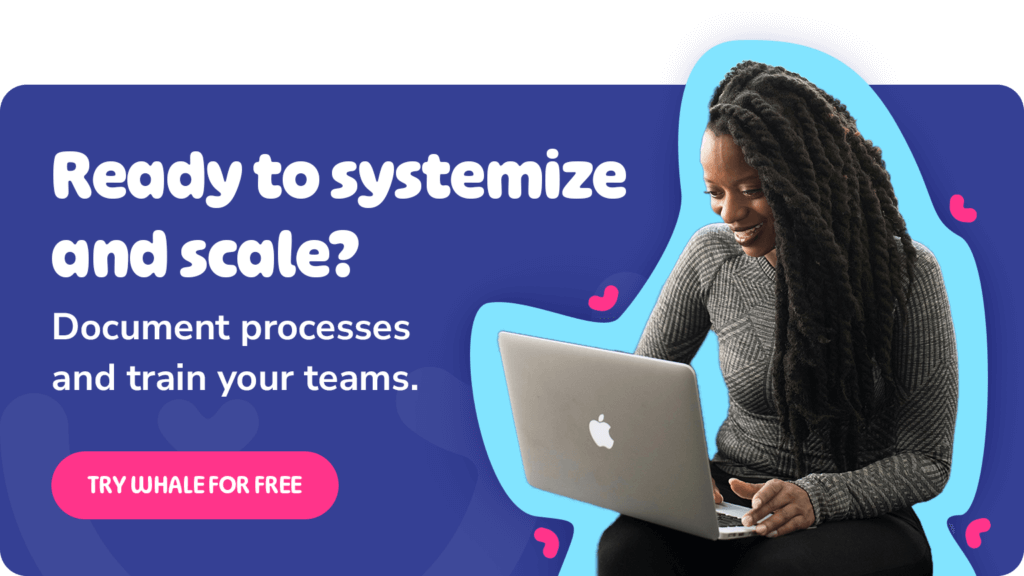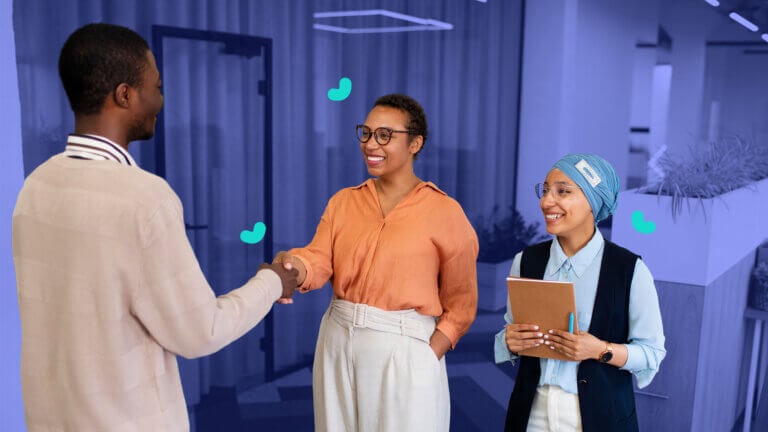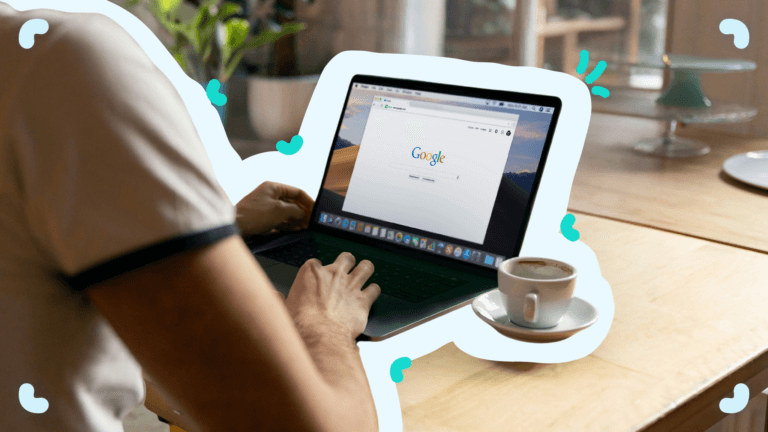Gamifying the onboarding process is a game-changer (pun intended!). By leveraging AI, you can create an engaging and interactive experience that captivates new hires right from day one. So, how do you use onboarding gamification to get new employees excited about learning and integrating into your company? Let’s dive in.
🎮 What is Onboarding Gamification with AI
Onboarding gamification means turning the traditional orientation process into a fun, interactive game-like experience. AI steps in to automate and personalize these experiences, making them more dynamic and engaging. Instead of overwhelming new employees with piles of documents and presentations, you’re introducing challenges, quizzes, and real-time feedback to keep them hooked.
🏆 5 benefits of AI Gamified Onboarding
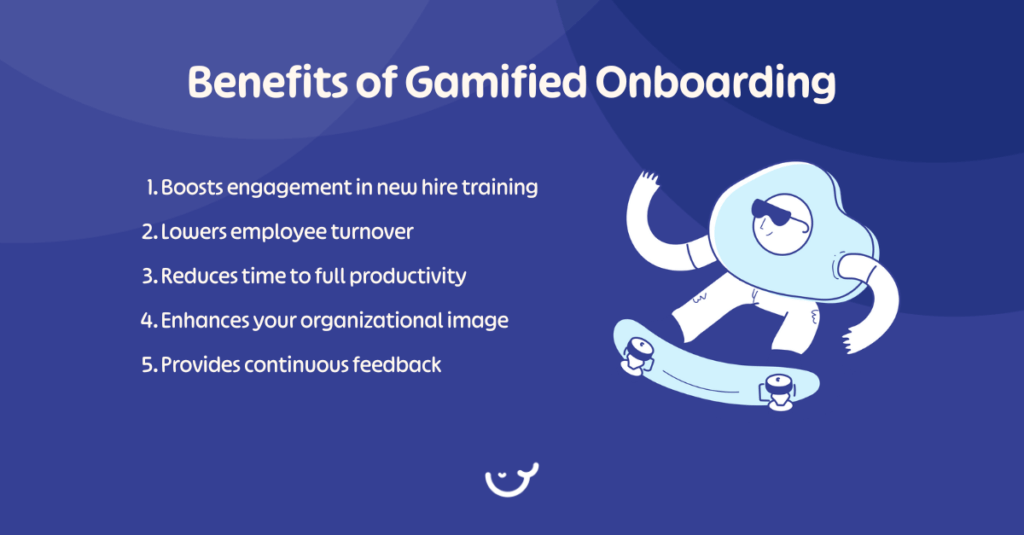
1. Boosts engagement in new hire training
Traditional onboarding can be tedious, but onboarding gamification makes learning fun. By incorporating AI, you can deliver personalized content, like quizzes or leaderboards, that keeps employees motivated and involved.
2. Lowers employee turnover
New hires who feel connected and engaged from the start are more likely to stick around. Gamified onboarding makes employees feel like they’re part of something bigger, which builds loyalty and reduces turnover.
3. Reduces time to full productivity
Gamified onboarding with AI can fast-track learning by breaking content into digestible tasks. When employees learn through bite-sized challenges, they get up to speed faster and become productive sooner.
4. Enhances your organizational image
Want to be seen as a forward-thinking company? A fun, tech-driven onboarding gamification experience speaks volumes about your company culture. It shows that you’re not afraid to innovate and care about your employees’ growth.
5. Provides continuous feedback
AI can continuously track employee progress during the first days, offering feedback in real time. This helps new hires improve their skills and knowledge throughout the process, ensuring they understand each step before moving on.
🎯How to gamify your Onboarding Process with AI
Ready to turn your onboarding process into a game? Here’s how to get started with onboarding gamification.
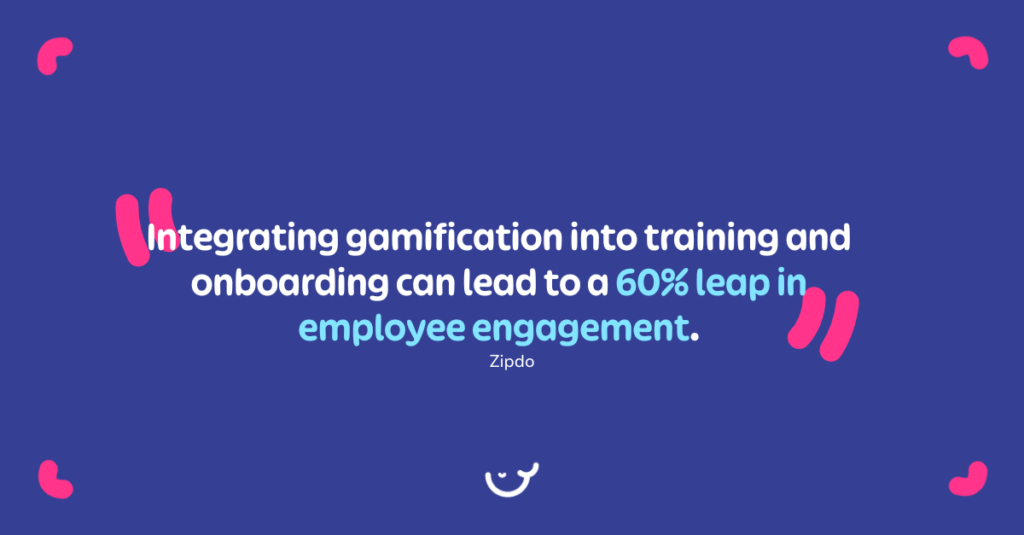
1. Use storytelling to connect with new hires
Everyone loves a good story! Use AI to create narratives that guide new hires through their onboarding journey. Think of it like an adventure where each challenge completed brings them closer to mastering their role.
2. Incorporate interactive elements
Quizzes, polls, and interactive simulations can turn dull training into engaging experiences. AI can help generate these elements, making them relevant to the employee’s role and level.
3. Set goals as challenges
Instead of presenting new hires with a long to-do list, frame each goal as a challenge. AI can create tiered challenges based on an employee’s progress, making the process more rewarding as they level up.
Why Gamified Onboarding is the Future
Gamifying your onboarding process with AI doesn’t just engage new hires—it sets the foundation for a future-ready workforce. By leveraging AI and automation, you can transform your onboarding into an immersive experience that boosts retention and speeds up learning.
Download the whitepaper to learn more about how AI can revolutionize onboarding and training, empowering you to develop a workforce prepared for the future!
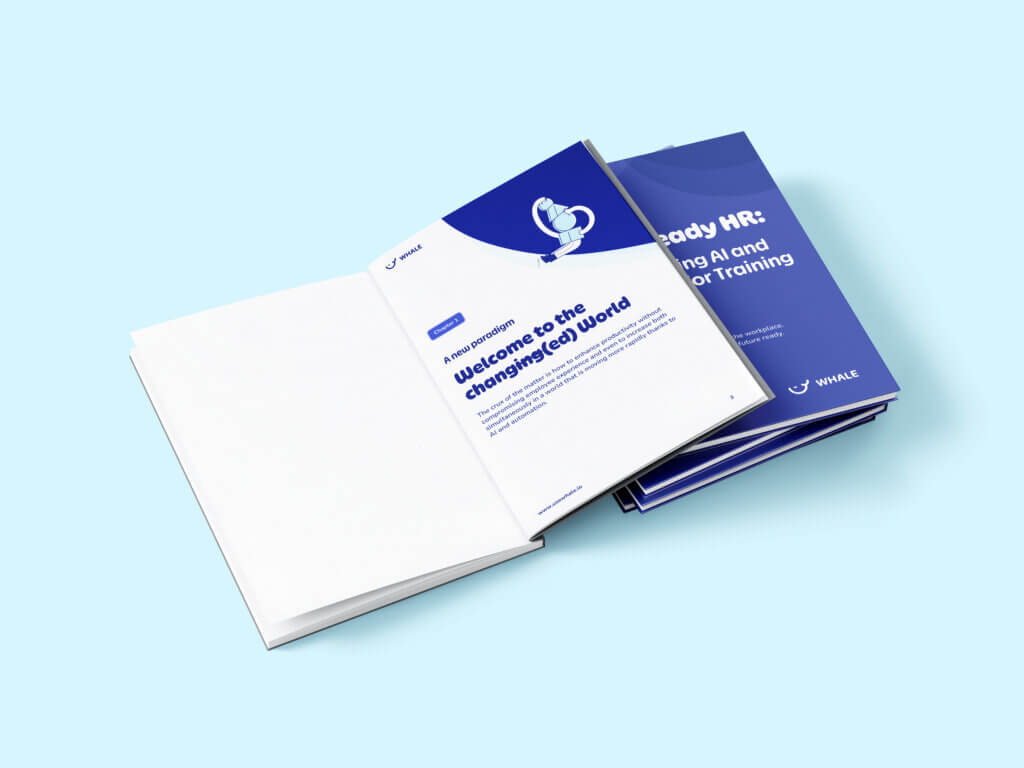
🚫Common pitfalls in onboarding gamification
While gamified onboarding is a great tool, it can backfire if not used wisely. Here are some common pitfalls to avoid:
1. Shifting the focus away from learning
The purpose of onboarding gamification is to enhance learning, not distract from it. Avoid making the game mechanics more important than the content itself.
2. Prioritizing completion over understanding
Gamified onboarding should prioritize comprehension, not just task completion. Ensure AI-driven metrics focus on understanding the material rather than just finishing tasks.
3. Overcomplicating game mechanics
Keep it simple. Overcomplicating the onboarding gamification process can overwhelm new hires, making their first days more stressful than engaging.
4. Promoting competition over collaboration
While competition can be motivating, it shouldn’t overshadow teamwork. Balance individual challenges with group-based activities to foster collaboration.
5. Treating gamification as the final goal
Gamification is a tool, not the end game. The goal should always be to help employees learn and integrate, not just to “gamify” for the sake of it.
👾 3 successful AI gamification onboarding examples
Looking for inspiration? Here are three companies that nailed onboarding gamification with AI:
1. Deloitte
Deloitte revamped its onboarding by integrating AI-driven simulations and challenges. These interactive experiences mirror real business scenarios, helping new hires not just learn but apply their knowledge immediately.
What did Deloitte do?
- They started with an engaging video explaining why they’re even there and what their mission is
- They awarded points for watching training content, completing tasks, quiz responses, document uploads, button clicks, achieving milestones, commenting, and even just participating in activities or the community.
- They awarded badges for milestones & achievements.
The AI adapts to individual learning paces, making onboarding dynamic and personal through gamification. Engaging? Absolutely.
And does it deliver ROI?
Deloitte‘s gamified onboarding led to a 50% increase in employee engagement and a 20% reduction in time-to-productivity.
2. Ikea
Ikea plans to train 3,500 of its employees on artificial intelligence (AI) literacy, the furniture giant announced in April 2024.
Ikea’s global workforce new-hire program got a major upgrade with AI and gamification onboarding. New hires face immersive role-play challenges that mimic real customer interactions. This approach not only simplifies learning but makes it fun and culturally aligned across locations. Efficiency meets engagement.
3. Bazaarvoice
Bazaarvoice implemented AI-powered gamified onboarding with real-time feedback, quizzes, and progress tracking. The system creates a sense of accomplishment from day one, helping employees stay engaged while mastering the essentials. No matter the company size, this strategy is fully scalable and ready to be put to work.
This last method is 100% actionable for any-sized company. What are you waiting for?
💡 5 tips for creating an effective gamified onboarding with AI
To build an AI-driven gamified onboarding process that delivers results, keep these tips in mind:
1. Know your audience
Understand the demographics and preferences of your new hires, invest more time into this if they’re remote workers. What excites them? What learning styles do they prefer? AI can help by analyzing employee data to tailor the experience.
2. Define clear objectives
Set clear goals for your gamified onboarding process. What do you want employees to learn? Which milestones should they hit? AI can track their progress against these objectives.
3. Start small, iterate, and scale
Don’t overwhelm yourself by gamifying the entire onboarding process at once. Start small, see what works, and gradually scale the gamification elements with AI.
4. Focus on the employee experience
Remember, this is about the employee’s journey. Use AI to create a personalized experience that aligns with each new hire’s pace and learning style.
5. Avoid gamification onboarding merely for trendiness
While gamification is popular, don’t jump in just because it’s trendy. Ensure that each game element adds real value to the onboarding experience.
Bottom Line?
Onboarding gamification with AI can transform the traditional hiring process into an engaging and interactive experience. By leveraging AI, companies can create personalized, fun, and effective training programs that captivate new hires and accelerate their learning.
To successfully implement AI-driven gamification, companies should focus on storytelling, interactive elements, goal-setting, and avoiding common pitfalls. By following these guidelines and leveraging the power of AI, organizations can create a memorable and impactful onboarding experience for their new employees.
FAQs on Onboarding Gamification
What is onboarding gamification?
Gamification onboarding is the process of using game elements like challenges, rewards, and storytelling to engage new hires. It can be extended into the following weeks of an employee’s training to keep them interested in continued learning.
How do you gamify new employee orientation with AI?
You can use AI to create personalized challenges, quizzes, and feedback loops that turn the orientation process into an interactive experience.
What is an AI onboarding game?
AI onboarding games use artificial intelligence to create customized, game-like experiences for new hires, helping them learn company processes in a fun way. Deloitte, Ikea, Bazaarvoice and Whale all implement gamification onboarding to increase engagement in the learning process.
How is AI gamification used in HR?
AI gamification in HR involves using game mechanics to enhance employee engagement, learning, and performance. It can be applied in any stage of an employee’s lifecycle and managed either by HR, the team lead, or a combination of the HR and expert team for best results.
